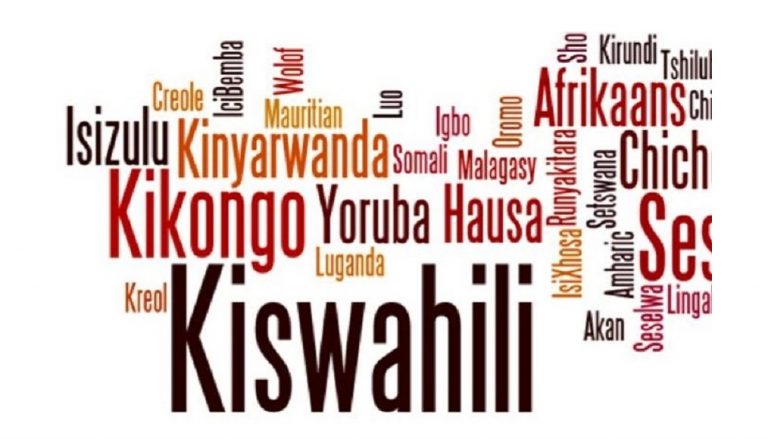Africa, with its over one billion people, is not just the second most populous continent in the world but home to the most diverse languages. The continent has over 1,500 different languages.
As the world celebrates International Mother Language Day to promote linguistic and cultural diversity, it would be ideal to learn some African languages that will enable you to communicate with people while doing business on the continent or enjoying tourist destinations. It will also help you understand the diverse cultures easily.
Here are 5 African languages you should know:
Swahili
This is the most spoken language in Africa, with over 100 million speakers. Also known as Kiswahili, the language is a Bantu language believed to have originated from other languages, specifically Arabic, following historical interactions between Arabs from the Middle East and East Africans. Swahili is the lingua franca of the African Great Lakes region and other parts of eastern and south-eastern Africa, including Uganda, Rwanda, Tanzania, Kenya, Burundi, Mozambique, and the Democratic Republic of the Congo (DRC).
It is currently the national language of four countries, namely Tanzania, Uganda, Kenya and the DRC. Shikomor, the official language in Comoros and also spoken in Mayotte (Shimaore), is also related to Swahili. With Swahili being widely spoken, it becomes imperative to learn the language as it will afford you the opportunity to visit and transact business with countries like Tanzania and Kenya.
You could also go to Rwanda, Uganda, Burundi, and Mozambique and do same. It shouldn’t be too hard for you to learn Swahili, as unlike other African languages, it does not use tones. It basically uses the Latin alphabet. And learning the language would also be easier if you already know some Arabic, as there are so many Arabic loanwords in Swahili. To practice some Swahili greetings, here’s how to go about it.
Amharic
This is the second most popular language in Ethiopia after Oromo, having over 21 million speakers. It is spoken as a mother tongue by the Amhara (an ethnic group traditionally inhabiting the northern and central highlands of Ethiopia) as well as other populations residing in major cities and towns of Ethiopia. Currently, Amharic is the official language of Ethiopia and also the working language of several of the states within the country. Over 2 million Ethiopians living outside the country also speak this language, as it is the second most Semitic language in the world after Arabic. Semitic languages are a branch of the Afroasiatic language family originating from the Middle East. Amharic which is related to Arabic and Hebrew, is written in the Ge’ez or Ethiopic script, with over 30 different characters. Learning to write and speak this language should be a part of your to-do list if you love literature, as the language continues to host so many Ethiopian literature – poetry and novels. Getting to know Amharic would enable you to keep abreast of a wide range of literature from the country, besides learning its diverse cultures.
Yoruba
The third most spoken language in Africa, Yoruba is also one of Nigeria’s official languages, serving as the mother tongue of the Yoruba people in the country. It has over 30 million speakers in Nigeria, Benin and Togo and it is widely spoken by West African expatriates in the US and UK. Yoruba, which has over 15 dialects, also forms part of the also forms part of Volta-Niger branch of the Niger-Congo family of languages. If you want to say hello in Yoruba, you should say “Bawo”. But take note, Yoruba is a tonal language with three tones: high, mid and low. Take some lessons in Yoruba. There are millions of sites and portals for doing so. On the lighter side, if you are a fan of Nigerian films, then you should learn Yoruba, as the language is often used in its traditional films.
Oromo
Over 30 million people in the Horn of Africa, specifically in Ethiopia, Somalia, Kenya and Egypt speak Oromo. The Oromo ethnic group is the largest in Ethiopia, accounting for over 40 percent of the population. The language falls under the Cushitic branch of the Afroasiatic language family. In the 20th century (between 1972 and 1991), Oromo was banned during the reign of Haile Selassie, and by the communist regime that followed his overthrow. The language has since adopted the Latin alphabet and it is now used in education, the media, government administration and national commerce. Here are some tips.
Hausa
Spoken as a first language by some 27 million people, Hausa is one of Nigeria’s official languages and one of the most spoken Chadic languages (a branch of the Afroasiatic language family) on the continent. Hausa originated as the language of the Hausa people in northern Nigeria and southern Niger. It immediately spread as the lingua franca of Western Africa as a result of trade. The language is spoken mainly in the following areas: northern Nigeria, Niger, Burkina Faso, Benin, Chad, Congo, and Cameroon. Other countries like Ghana, Central African Republic, Eritrea, Togo and Sudan also speak Hausa. Hausa is a tonal language, but do not let that discourage you from learning the language. It uses the Boko and Latin alphabet, which is the writing system for most Muslims in western Africa. Get abreast of the language.

